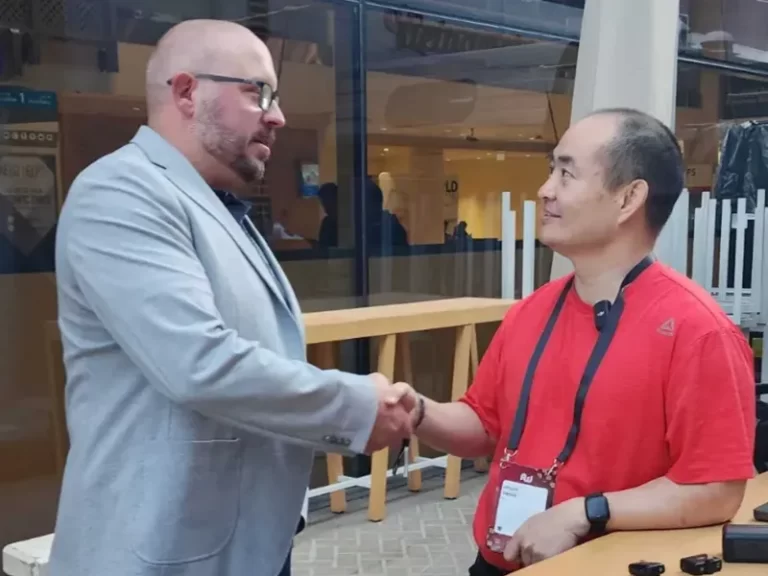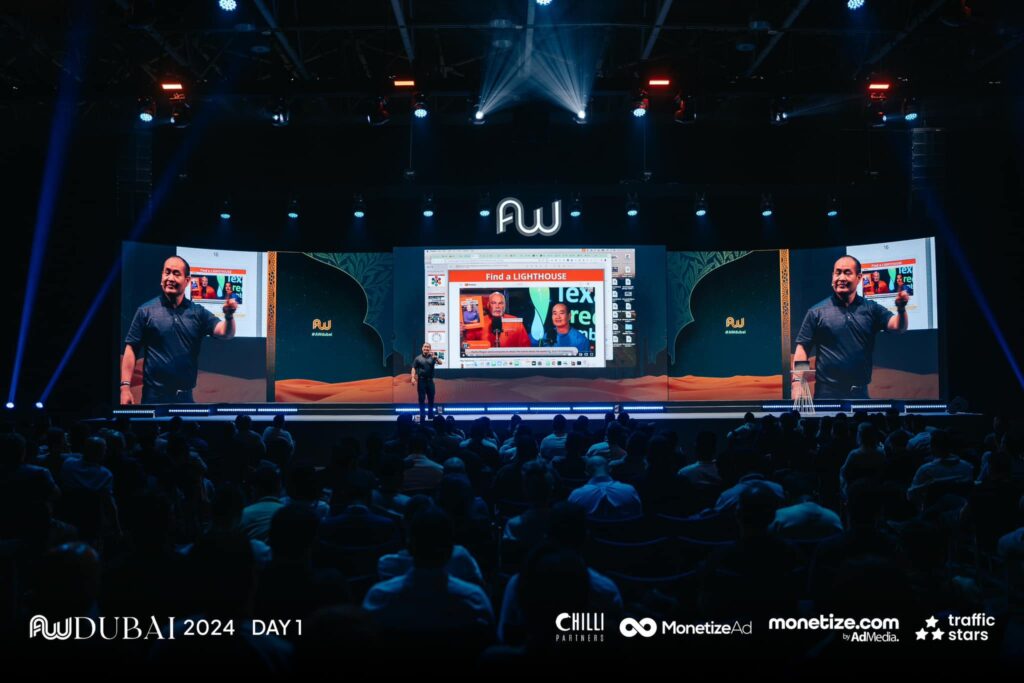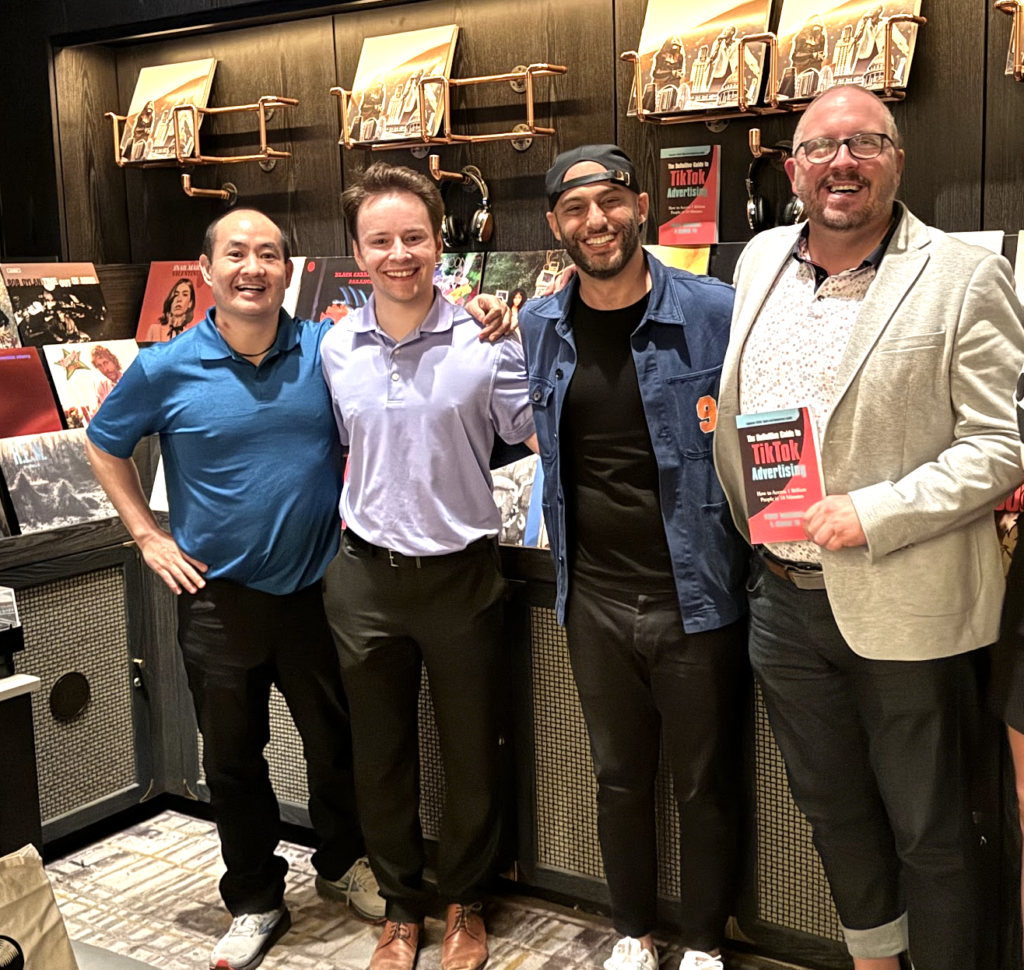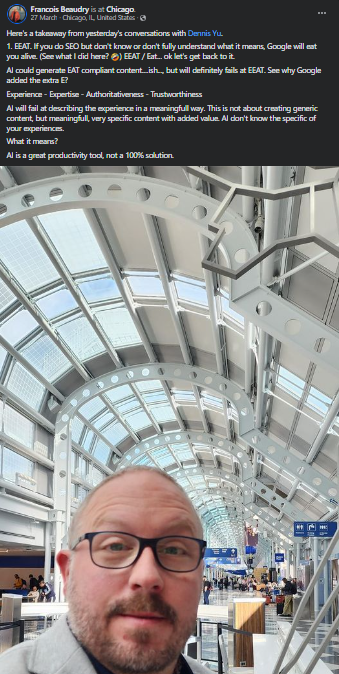

In February, I spoke at the Affiliate World Dubai Conference, which hosted some of the biggest names in affiliate marketing and e-commerce. François Beaudry was one of them.

François Beaudry, the President and Founder of VIA Communication, approached me after my presentation and asked about my perspective on the Future of SEO. I explained to him that Google’s search results are evolving beyond the traditional ten blue links appearing one page at a time. There will now only be one page of search results. Even if you rank at position 97, you can claim to be on the first page because there is only one page.
Additionally, two more things are happening: various featured snippets such as videos, PAA (People Also Ask), ads, and local results are now part of the search results. Sometimes, it’s easier to rank on YouTube. If I can rank first on YouTube for something like “Pest Control Houston Texas,” it demonstrates effectiveness.
Last week, I tweeted about a search on my name, and it appeared at the top instantly. You can check this on your phone right now. I’ve proven this multiple times, showing that Google is taking real-time updates into account.
Here’s the significant change: everyone is talking about ChatGPT as a potential Google killer because it provides a consolidated answer. ChatGPT, as part of a large language model (LLM), predictively processes queries by summarizing information from Google’s various results. However, who is in the best position to provide a proper summarized answer? Google, because they start with what is called the “canonical truth” — what’s real and not fake news. Google has a head start in categorizing the world’s information and in processing power. They even make their own CPUs, being the world’s second-largest maker of CPUs.
Google is releasing something called SGE (Search Generative Experience), currently available in the United States to a limited set of people. By the end of 2024, it will be more widely available, and possibly by 2025 for those outside the U.S. SGE is transforming search results, with knowledge panels showing up for people and companies, and eventually for any object. Google won’t officially confirm this, but it’s happening.
SGE’s impact means no more clear positioning like 1, 2, or 3 in search results. Instead, knowledge panels and summarized answers will dominate. SEO practices will need to adapt to this shift. Many who relied on old, spammy tactics will be caught off guard. SEO isn’t just about ranking websites anymore; it’s also about ranking content on various platforms like LinkedIn, YouTube, and Twitter.
For instance, if you search for “Dennis Yu” on Google, you’ll see a bunch of colored boxes called knowledge panels. These panels come from the Knowledge Graph and include comprehensive information. ‘SEO Experts’ will have to focus on creating content that feeds into the Knowledge Graph, ensuring their information appears in these panels.
The future of search is dynamic knowledge panels. Content from your website will still matter because Google needs to crawl and index it. As search evolves, those who have adapted by linking their content to the Knowledge Graph will thrive. Others, stuck in outdated methods, will struggle.
If you follow me and people like François Beaudry, you will stay ahead. Showing up in the Knowledge Graph means having real relationships, authentic content, and integrated information across various platforms. As search changes, being part of the Knowledge Graph ensures you won’t be left behind. I predict that from now on, “SEO experts” will become SGE or AI experts, but the fundamentals of authentic, connected content will remain key.
This is why EEAT (Experience, Expertise, Authority, and Trust) is important. A few months back, Google added the other E (Experience).
The key element here is stories. AI lacks personal experiences—like eating tacos with a friend in Austin or enjoying a steak together. These human stories help Google distinguish between genuine content and content made just for search engines.

Google prioritizes stories about who you’ve helped and videos showing how you’ve helped them. It favors people who can consistently prove their credibility and expertise in their field.
While some “SEO Experts” tout secret formulas for boosting rankings, true search engineers understand that implementing proper E-E-A-T is the most effective SEO strategy for growing your website’s visibility.
François Beaudry was concerned that using AI would get his website penalized. If you don’t use it correctly, then yes, it will hurt you. However, if you use AI to enhance your content, then it will help your website rank even better.

Quality Over Quantity
Most digital marketers think that having as many inbound links as possible will show Google that they are being talked about a lot, but quality backlinks are always more important. François Beaudry was already aware of this, but he was bothered by one question: “What should we do with poor-quality backlinks operated by robots, which were not created by our team?” I told him to stop disavowing them; bad links are becoming less important every day. Old bad links have less impact than new good links, so just focus on building new good links.

